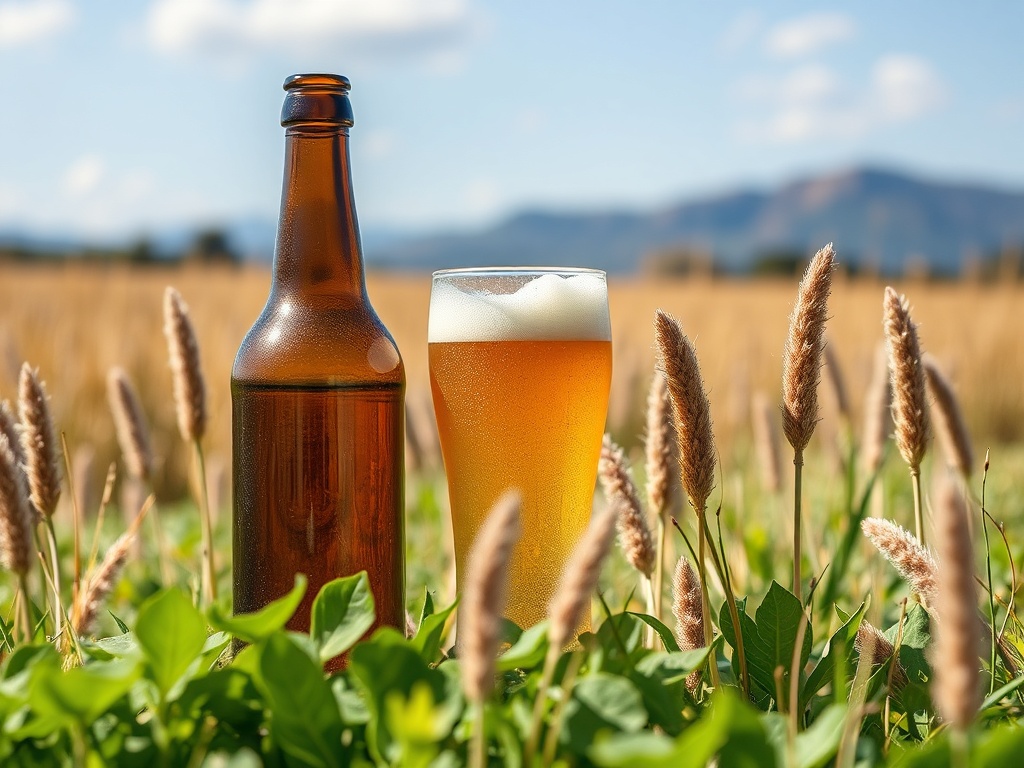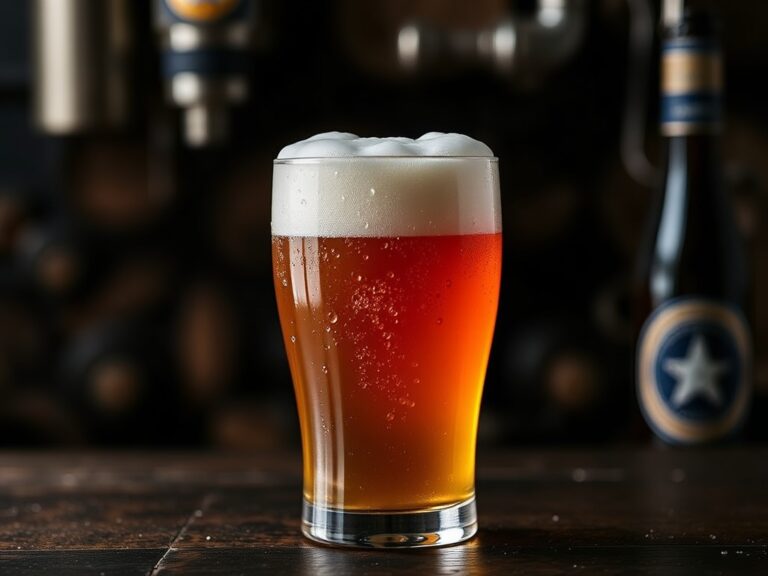Sustainable Brewing in Australia: Innovations & Best Practices

Australia’s craft beer industry has blossomed in recent years, not just in flavour and creativity, but also in sustainability leadership. As environmental concerns become central to consumers and producers alike, breweries across the country are pioneering new ways to reduce their ecological footprint. This in-depth guide explores sustainable brewing in Australia, highlighting eco-friendly breweries, innovative green craft beer practices, and actionable steps for breweries and beer lovers to contribute to a lower-impact industry.
Table of Contents
- Why Sustainable Brewing Matters in Australia
- Core Principles of Sustainable Brewing
- Innovations Driving Sustainable Brewing in Australia
- Case Studies: Eco-Friendly Breweries Leading the Way
- Best Practices for Green Craft Beer Production
- The Role of Consumers in Sustainable Brewing
- Actionable Takeaways for Brewers & Beer Drinkers
- Further Resources
Why Sustainable Brewing Matters in Australia
Australia’s unique climate, water scarcity, and biodiversity make sustainability a critical consideration for all industries, especially resource-intensive sectors like brewing. With over 700 craft breweries operating nationwide, the sector’s collective impact on water resources, energy consumption, and waste generation is significant.
Key drivers for sustainable brewing in Australia include:
- Water Stress: Brewing is water-intensive, and Australia faces ongoing drought challenges.
- Energy Use: High energy requirements for heating, cooling, and packaging contribute to greenhouse gas emissions.
- Consumer Demand: Australian consumers increasingly favour eco-friendly breweries that adopt transparent, sustainable practices.
- Regulatory Pressure: Government initiatives and environmental regulations are pushing for greener operations.
Core Principles of Sustainable Brewing
While each brewery’s approach will differ, the following principles underpin sustainable brewing practices:
- Resource Efficiency: Minimising water, energy, and raw material use at every stage.
- Waste Reduction: Implementing strategies to recycle or repurpose brewing by-products.
- Renewable Energy: Transitioning to solar, wind, or other renewable power sources.
- Local Sourcing: Reducing transportation emissions by using locally grown ingredients.
- Community Engagement: Collaborating with local groups and promoting environmental education.
Innovations Driving Sustainable Brewing in Australia
Australian breweries are adopting cutting-edge technologies and creative solutions to reduce their environmental impact. Here are some notable innovations:
1. Water Reclamation and Conservation
Water usage is a critical sustainability issue for breweries. Innovations include:
- Closed-Loop Systems: Breweries like Stone & Wood use water recapture systems to recycle cleaning and cooling water.
- Rainwater Harvesting: Some breweries supplement municipal supply with harvested rainwater for cleaning or irrigation.
2. Renewable Energy Integration
Solar panels, biogas digesters, and energy-efficient equipment are now common in leading green craft beer operations:
- Solar Power: Bentspoke Brewing Co. in Canberra installed rooftop solar, supplying a significant portion of its energy needs.
- Heat Recovery: Systems that capture and reuse heat from brewing processes, reducing energy waste.
3. Sustainable Packaging Solutions
Eco-friendly packaging is a hallmark of sustainable brewing in Australia:
- Lightweight Cans: Lower carbon footprint than glass bottles and easier to recycle.
- Recycled Materials: Using recycled paperboard and biodegradable six-pack rings, as seen at Yulli’s Brews.
4. Circular Economy Approaches
Sustainable breweries are finding ways to close the loop on waste:
- Spent Grain Reuse: Partnering with local farmers for animal feed or using spent grain to bake bread and snacks.
- Composting: Organic waste is composted on-site or through local partnerships.
Case Studies: Eco-Friendly Breweries Leading the Way
Several Australian breweries have become sustainability trailblazers. Here are three standout examples:
1. Stone & Wood Brewing Co. (NSW)
- Installed advanced water treatment and reuse systems.
- Utilises solar panels and energy-efficient equipment throughout the brewery.
- Active participant in the 1% for the Planet initiative, donating a portion of proceeds to environmental causes.
2. Young Henrys (NSW)
- Partnered with the University of Technology Sydney to create an algae bioreactor that absorbs CO₂ produced during fermentation.
- Committed to waste reduction through reusable packaging and spent grain donations.
3. Stomping Ground Brewing Co. (VIC)
- First Australian brewery to earn B Corp certification for social and environmental performance.
- Invests in community green spaces and local sustainability projects.
Internal Linking Opportunity:
For a broader look at responsible production, see our article on Ethical Craft Beer in Australia.
Best Practices for Green Craft Beer Production
Whether you’re a large-scale operation or a microbrewery, these best practices can help reduce your environmental impact:
- Conduct a Sustainability Audit: Assess your environmental footprint and set measurable goals.
- Optimise Water Use: Implement cleaning-in-place (CIP) systems and monitor water-to-beer ratios.
- Switch to Green Energy: Invest in solar panels, purchase renewable energy, and upgrade to efficient boilers and chillers.
- Source Local Ingredients: Reduce food miles and support Australian growers by choosing local hops and grains.
- Innovate in Packaging: Use recyclable, biodegradable, or refillable packaging formats.
- Engage Employees: Involve staff in sustainability initiatives and reward eco-friendly ideas.
- Educate Your Customers: Share your green journey through taproom displays, social media, and product labelling.
The Role of Consumers in Sustainable Brewing
Eco-friendly breweries thrive when supported by informed, engaged consumers. Here’s how beer lovers can make a difference:
- Buy Local: Support breweries committed to sustainable brewing in Australia.
- Look for Certifications: Seek out B Corp, Certified Organic, or carbon-neutral labels.
- Return and Recycle: Use container deposit schemes and return reusable growlers.
Actionable Takeaways for Brewers & Beer Drinkers
- Breweries: Start small—track your water and energy use, and set annual reduction targets.
- Beer Lovers: Choose eco-friendly breweries and ask about their sustainability practices.
- Everyone: Advocate for green craft beer at events, festivals, and in your community.
Further Resources
- Independent Brewers Association (IBA) – Sustainability initiatives and events
- Sustainability Victoria – Practical guides for small businesses
- Ultimate Guide to Sustainable Craft Beer – In-depth tips and trends
By embracing innovation, collaboration, and transparency, Australia’s craft beer industry is showing the world how sustainability and great beer can go hand in hand. For more on how you can enjoy green craft beer responsibly, explore our Sustainable Craft Beer Guide.



